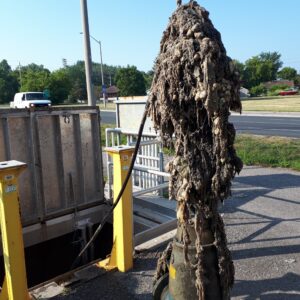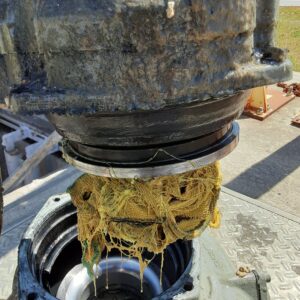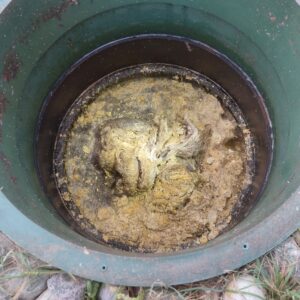Protect your home, the environment and our wastewater system from costly repairs by flushing only what is allowed down drains, sinks and toilets.
What to flush
The only acceptable items to flush are:
- Human waste
- Toilet paper
- Water
What not to flush
The following items should not be flushed:
- Wipes, including ones advertised as “flushable,” can’t be flushed. Flushable wipes keep their shape and strength and don’t break down in the wastewater system.
- Paper towels, tissues and napkins also don’t break down like toilet paper and can clog your pipes.
How to dispose of these items properly: Place all wipes (including those labeled “flushable”) in the garbage. Paper towels and facial tissues can be placed in the green bin.
The following items can clog your pipes and pumps within the wastewater system:
- Bandages
- Condoms
- Cosmetics
- Cotton swabs
- Dental floss
- Diapers
- Rags
- Sanitary pads
- Tampons
How to dispose of these items properly: Place these items in the garbage.
Flushing medication down the sink or toilet, whether in liquid or pill form, can harm the environment and aquatic life.
How to dispose of these items properly: Take unused, unwanted or expired medication to a pharmacy for proper disposal.
FOG clogs! When drained into sinks or toilets; fats, oils and grease will solidify and build up in your pipes, creating blockages in the wastewater system.
How to dispose of these items properly: Wipe and/or scrape FOG from dishes and pans before rinsing and place in your green bin. Allow excess fats, oils and grease (such as cooking oils and sauces) to cool and solidify and place in your green bin.
The following items should never be flushed down the drain:
- Bleach
- Ammonia
- Solvents
- Spot removers
- Disinfectants
- Hot tub and swimming pool chemicals
- Oven cleaners
- Paints
- Stains
- Varnishes
- Paint thinners
- Motor oil
- Gasoline
How to dispose of these items properly: Learn more about hazardous waste disposal, including acceptable materials and drop-off locations, at quinterecycling.org.
What happens when you flush items you shouldn’t?
Flushing items you shouldn’t can clog your pipes (increasing the risk of sewer back-ups in homes, increased maintenance costs, unnecessary home damage and insurance claims), damage the City’s wastewater infrastructure (pipes and equipment) and harm the environment.
More information
- Learn more about garbage collection and medical waste disposal
- Learn more about recycling and hazardous and electronic waste disposal
- Water and sewer FAQ
- Learn more about the wastewater system, sewers and reporting a sewage blockage




